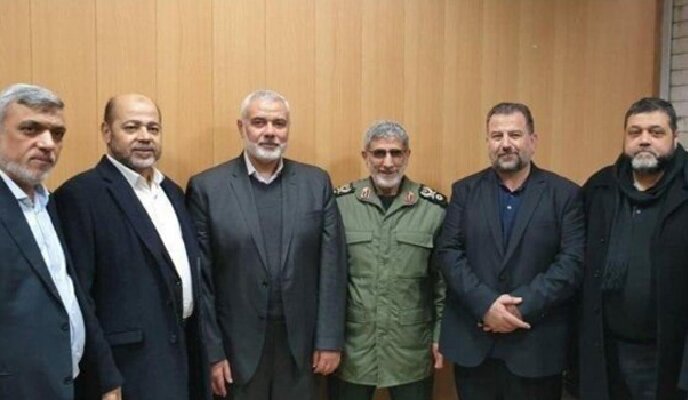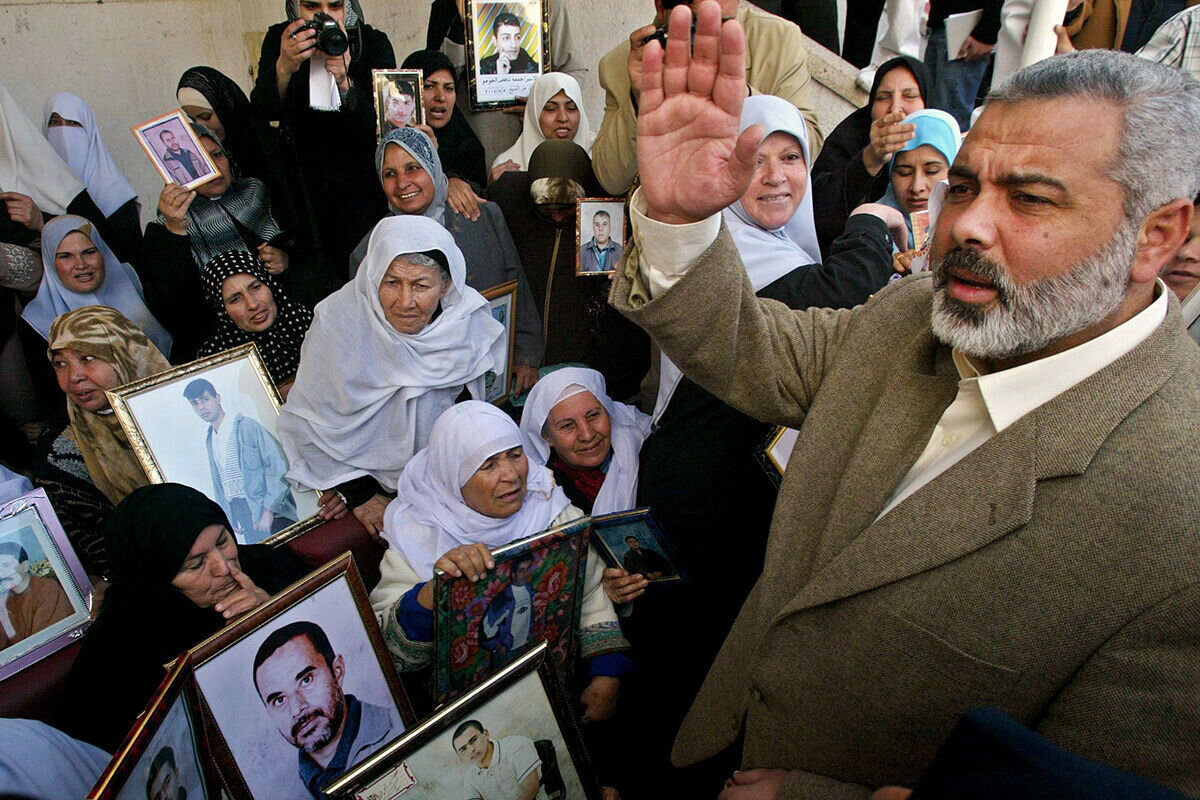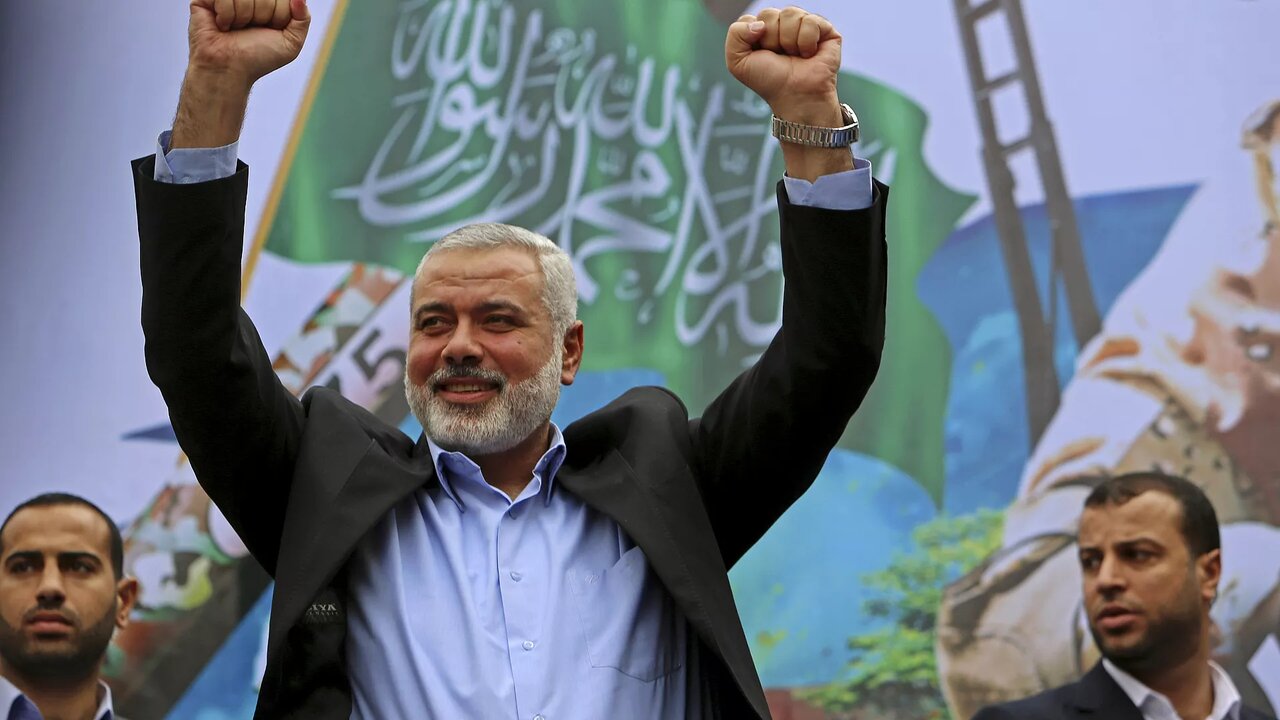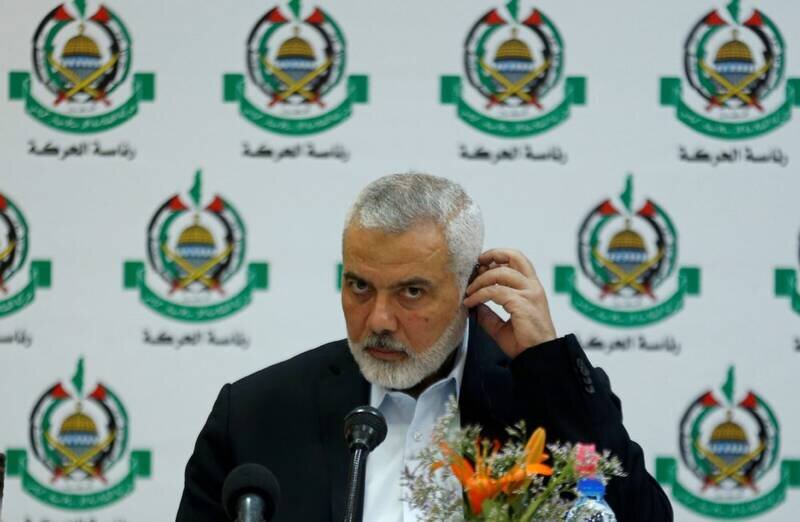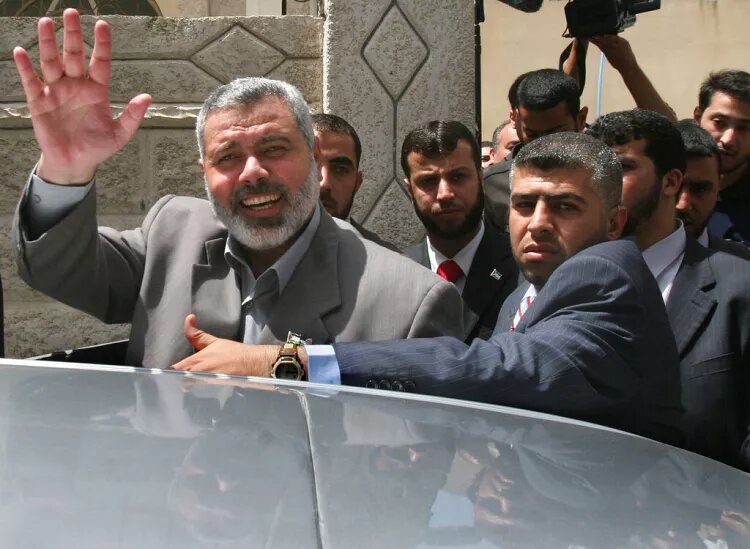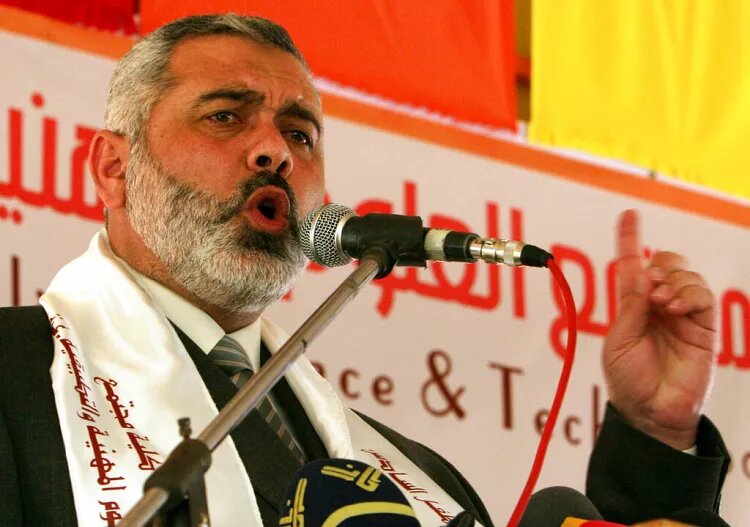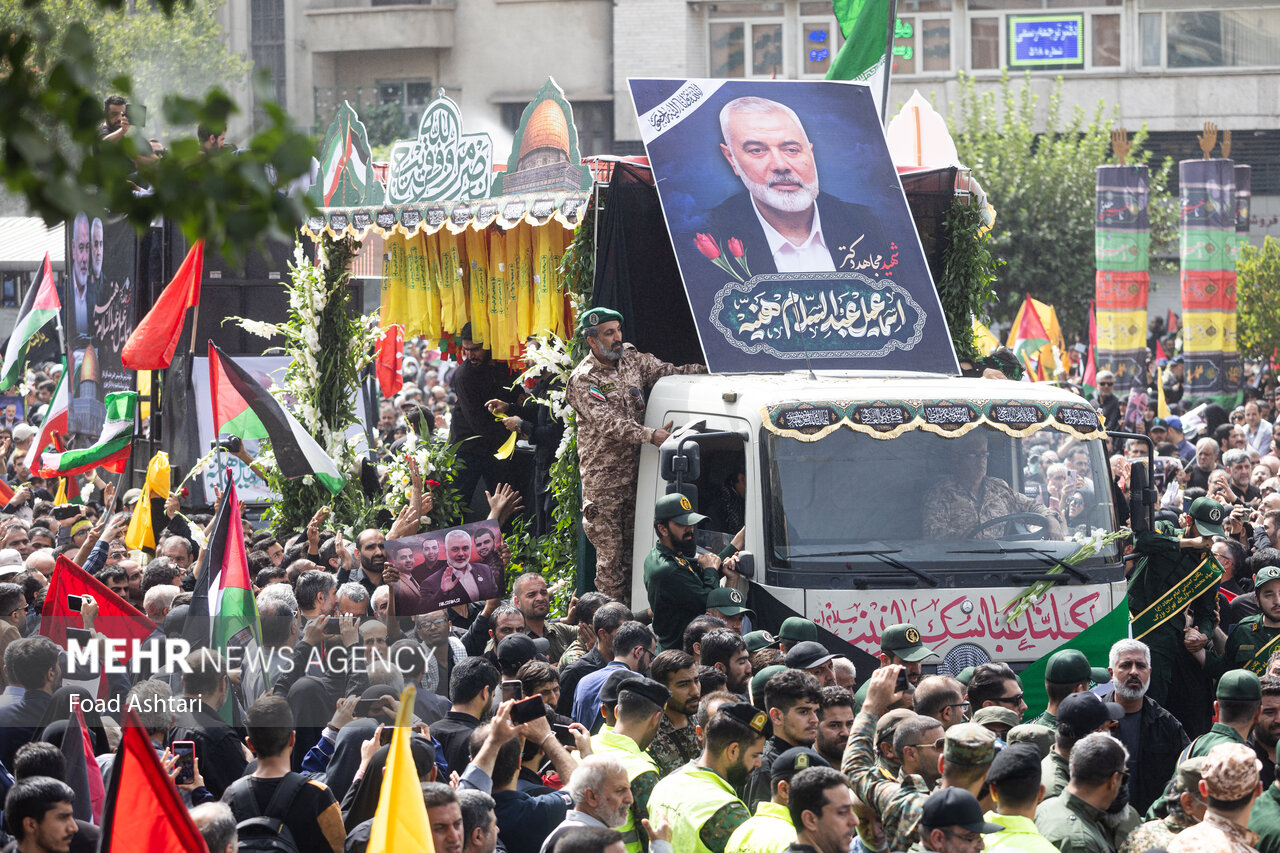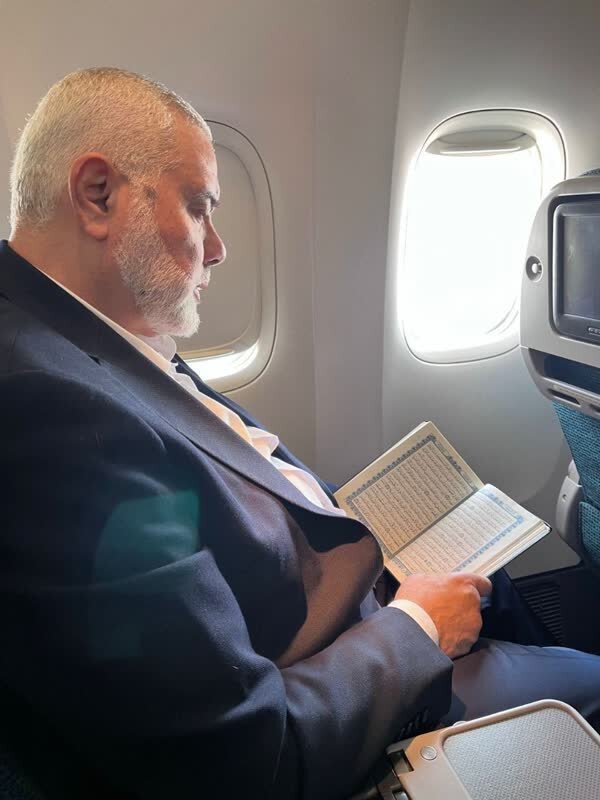Martyr “Hanieh”; From the story of failed assassinations to the command of Tofan al-Aqsa
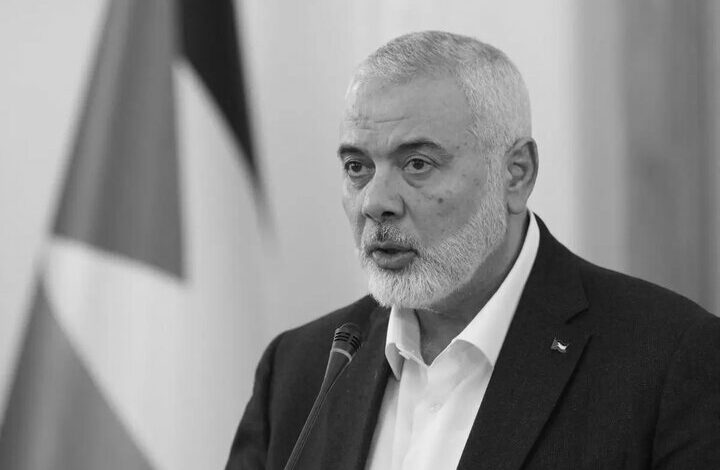
Mehr News Agency, International Group, Elnaz Rahmatnejad: to date If we look at the contemporary, no regime has committed targeted assassinations outside its borders as much as the Zionist regime. Ronen Bergman, a Zionist investigative journalist, wrote in the book “Get up and kill yourself first”: “The history of the Zionist regime is intertwined with terror. From the first days of the establishment of this regime, a series of Zionist militia groups attempted to assassinate British officers and officials, and with the end of World War II, these assassinations turned into a huge plan to take revenge on those responsible. The killing of Jews in the war was known.”
During the “Nazi Punishment” program, Zionist spies and informants were looking for survivors of the former German regime to arrest or assassinate them. These revenges were sometimes presented in the form of insane plans, such as the plan to kill six million Germans by poisoning the drinking water of large German cities.
After the 1948 war, the focus of these revenges changed from the Germans to the Palestinian Arabs. During these decades, by dehumanizing Palestinians, the Zionist regime has always been busy planning terror, from political and military leaders to intellectuals, writers, and scientists. According to Bergman’s report, the purpose of many assassinations is to advance political goals. Sheikh Ahmed Yassin, the leader of Hamas, Fathi Shaghaqi, the founder of the Palestinian Islamic Jihad, Mahmoud Al-Mahhouh, one of the leaders of Hamas, and Ismail Haniyeh were among the victims of these assassinations.
Hanieh, who had traveled to Iran to express his condolences for the martyrdom of Lieutenant General Qassem Soleimani, met with General Ismail Qaani, commander of the Quds Force of the Islamic Revolution Guards Corps, and attended the house of the martyr General Hajj Qassem Soleimani. He considered terror as an unscrupulous policy and said: “The blood of the martyred leaders of the resistance will strengthen and insist the movement of the resistance as much as possible to prove to the usurping Zionist regime and the United States that the policy of unscrupulous terror is a failed and weak policy.”
In the opportunity we had, we reviewed and reviewed the life and political activities of Ismail Abdulsalam Ahmed Haniyeh, which is detailed in the following report;
1987 war; Expulsion of Haniyeh’s parents from Ashkelon
Ismail Abdulsalam Ahmed Haniyeh was a Palestinian politician and one of the leaders of Hamas, who ruled the Gaza Strip since 2007. He was also the Prime Minister of the Palestinian Authority from 2006 to 2007. Haniyeh lived in Qatar from 2017 until he was assassinated by the Zionist regime in Tehran.
Hanieh was born in Makhim al-Shati camp in the Gaza Strip, which was occupied by Egypt at that time. During the 1978 Arab-Palestinian War, his parents were expelled from their home in Ashkelon, the lands where the fake Zionist regime was established. He studied in United Nations schools and graduated in Arabic literature from the Islamic University of Gaza in 1987, almost at the same time as the beginning of the first intifada. From 1985 to 1986, he was the president of the student council representing the Muslim Brotherhood. He also played as a midfielder in the Islamic Association football team.
Exile to Lebanon; The recognition of Hamas in the world
Ismail Haniyeh participated in the demonstrations of the first intifada and was sentenced to prison by the military court of the occupying Jerusalem regime. He was arrested again in 1988 by this fake regime and imprisoned for six months and in 1989 for three years. After his release, in 1992, the Zionist military authorities deported him to Lebanon along with Abdulaziz Al-Rentisi and Mahmoud Zahar and 400 other senior Hamas leaders. The activists remained in southern Lebanon for more than a year, where, according to the BBC, “Hamas received unprecedented media exposure and worldwide recognition.” Ismail Haniyeh returned to Gaza a year later and was appointed as the head of the Islamic University.
Prime Minister; The peak of the conflict between Fatah and Hamas
Hanieh was nominated as Prime Minister on February 16, 2006 following the victory of the Hamas “Change and Reform List” in the January 25, 2006 elections. He officially arrived in the presence of the President of the Palestinian Authority Mahmoud Abbas as the 10th Prime Minister of the Palestinian Authority on February 20 and was sworn in on March 29, 2006; Until Mahmoud Abbas dismissed Haniyeh from his position on June 14, 2007, at the height of the conflict between Fatah and Hamas, but Haniyeh did not accept this order and continued to exercise the power of prime minister in the Gaza Strip.
Rejection of economic sanctions against self-governing organizations
After these elections, the Zionist regime imposed a series of punitive measures, including economic sanctions, against the self-governing organizations. The prime minister of this fake regime, Ehud Olmert, announced that the occupying regime will not allow the Palestinian Authority to transfer an estimated 50 million dollars from the tax revenues collected by the Zionists on behalf of the Palestinian Authority. Haniyeh rejected these sanctions and said that Hamas will neither disarm nor recognize the Zionist regime.
Also, the United States requested that 50 million dollars of unspent aid to the Palestinian Authority be returned to the United States, which the Palestinian Minister of Economy agreed to. Haniyeh said after losing American and European Union aid: “The West always uses its aid to put pressure on the Palestinian people.”
The home of Dr. Marvan Ross; The failed assassination of Haniyeh
Ismail Haniyeh has described the details of his unsuccessful assassination operation as follows: “On 06/09/2003 We went with Sheikh Ahmed Yassin to visit Dr. Marwan Abu Ras. When we had lunch at his house, suddenly an F-16 plane bombed the place where we were. The roof collapsed and smoke and dust escaped everywhere. Thanks to God, we managed to get out of the house and God saved us and the family of Dr. Abu Ras.”
Shooting at Haniyeh’s convoy in Gaza
It was necessary to reach an agreement with Mahmoud Abbas to prevent him from calling for new elections. On the night of this agreement on October 20, 2006, to end the factional war between Fatah and Hamas, bullets were fired at Haniyeh’s convoy in Gaza and one of its vehicles was set on fire. Haniyeh was not harmed in this attack.
Prohibition of entering Gaza from Rafah
In December 2006, when the conflict between Fatah and Hamas calmed down, Haniyeh was not allowed to enter Gaza from Egypt at the Rafah border crossing. This crossing was closed by the order of the Minister of Defense of the Zionist regime, Amir Peretz. Haniyeh was returning to Gaza from his first official foreign trip as Prime Minister. He was carrying about 30 million US dollars in cash for payments to the self-governing organization. Zionist officials later said they would allow Haniyeh to cross the border if the money stayed in Egypt and was transferred to an Arab League bank account. In response to this incident, an armed battle broke out between Hamas militants and the security guards of the head office of the Self-Governing Organization.
When Haniyeh tried to cross the border, there was an exchange of fire and a bodyguard was killed and his eldest son was wounded. Hamas called this incident an attempt by Fatah’s rival group to kill Haniyeh and condemned it. This led to an armed war in the Gaza Strip and the West Bank between the forces of Hamas and Fatah. Haniyeh was quoted as saying that he knows who the accused are, but he refused to identify them and called for Palestinian unity. Egypt also offered to mediate.
Hanieh’s resignation
Hanieh resigned on February 15, 2007 in the framework of the process of forming a national unity government between Hamas and Fatah. On March 18, 2007, he formed a new government as the head of a cabinet that included Fatah and Hamas politicians.
On June 14, 2007, in the midst of the 2007 Gaza conflict, Mahmoud Abbas announced the dissolution of the March 2007 unity government and declared a state of emergency. Haniyeh was dismissed and Abbas ruled the West Bank and Gaza with the orders of the head of the establishment. In 2016, Haniyeh agreed to move from Gaza to Qatar. He had an office in Doha. The Zionist authorities had held him responsible for the failure of the peace negotiations and the release of the hostages several times.
Hanieh instead of Musa Abu Marzouk and Mahmoud Zahar
In November 2016, there were reports that Hamas had replaced Khaled Meshaal as the leader of Hamas. Haniyeh, Meshaal and Mahmoud Abbas met in Qatar to discuss national reconciliation and the upcoming elections. This meeting showed that Haniyeh was chosen instead of two other possible candidates, Musa Abu Marzouq and Mahmoud Zahar.
In 2018, the United States placed Haniyeh on the list of specially designated global terrorists. In February 2020, Haniyeh met with Turkish President Recep Tayyip Erdogan. The US State Department called this meeting harmful to the interests of the Palestinian people and weakening global efforts to prevent terrorist attacks from Gaza. In August 2020, Haniyeh called Abbas and rejected the Israel-UAE peace deal, an event Reuters called a rare show of unity. On July 26, 2023, Haniyeh met with Erdogan and Mahmoud Abbas. Türkiye’s effort to reconcile Fatah and Hamas was behind the curtain of this meeting.
Ismail Haniyeh’s position in the Hamas movement was promoted during the second intifada due to his closeness to the martyr Ahmed Yassin, the leader of Hamas at the time, and the martyrdom of a number of Hamas commanders by the Zionist regime.
Hanieh; The main figure of Al-Aqsa storm operation
Immediately after the start of Operation Al-Aqsa Storm by Hamas on October 7, 2023, Ismail Haniyeh appeared in a video showing him in his office in Doha, Qatar, following up on a report from the fighters of the battalion. Hai Izzedin al-Qassam shows that in it, Hamas fighters took control of the military vehicles of the Zionist regime. According to the Telegraph newspaper, Haniyeh became the “main face” of this operation and publicly described it as the beginning of a new era in the conflict between Palestine and the Zionist regime.
In a televised speech, Haniyeh referred to the threats to the Al-Aqsa Mosque, the siege of the Gaza Strip by the army of the occupying Quds regime, and the suffering of the Palestinian refugees: “We warned you several times that the people Palestine has been living in refugee camps for 75 years, and you refuse to recognize the rights of our people? The Zionist regime, which cannot protect itself in the face of resistance, cannot protect other Arab countries, all the normalization agreements that you signed with that regime cannot resolve the Palestinian conflict.”
We are people who love testimony
In his speech in 2014, in response to the ongoing siege of the Gaza Strip, he said to the authorities of the Zionist regime: “We are a people, if your decision is siege, our decision is victory, and if the decision is You have the kneeling of Gaza and the people of Gaza, our decision is to kneel only before God. All decision makers inside and outside of Palestine must get the message from these people that we are a people who love martyrdom as our enemies love the worldly life. We love to bear witness to what the leaders died for, those who love seats, posts and positions, remove all the seats and leave the homeland for us.”
The blood of my children is not more precious than the blood of Palestinian children
Seven members of Ismail Haniyeh’s family, including his three sons and some of his grandsons, were martyred on April 10 in the Israeli bombardment that targeted the car carrying them in the coastal camp. They had gone there to congratulate the residents of al-Shati camp on Eid al-Fitr.
Also, 10 members of Haniyeh’s family, including his sister, were martyred on June 24 following the bombardment of their house in al-Shati camp in the west of Gaza City by the Zionist regime army. Haniyeh said about this incident: “The blood of my sister Umm Nahad and her children and grandchildren is mixed with the blood of Palestinians in the Gaza Strip, the West Bank and all the places where the Palestinian people are.” Stating that they were martyred in a victorious battle and became immortal, he added: “Their martyrdom only strengthens resistance, stability on the path and certainty of victory.”
After learning about the martyrdom of his children and grandchildren, Ismail Haniyeh said: “The blood of my martyred children and grandchildren is not more precious than the blood of the children of the Palestinian people.” I thank God for granting me the martyrdom of my three sons and some of my grandchildren.”
High popularity of Haniyeh in Palestine
On November 2, 2023, Haniyeh stated that if the Zionist regime agreed to a ceasefire and the opening of humanitarian crossings to bring more aid to Gaza, Hamas would open political talks for a two-state solution with Quds. It agrees as the capital of Palestine. He added to his words: “The prisoners of the Zionist regime are also subject to the same destruction and death as our people.”
A poll on December 13 showed that Haniyeh decisively defeats Mahmoud Abbas for the position of head of the Palestinian Authority (78% for Haniyeh and 16% for Abbas). However, in a three-person competition between Haniyeh, Abbas and Marwan Barghouthi, Barghouthi wins 47%, Haniyeh 43% and Abbas 7%. Barghouthi is also in solitary confinement of the Zionist regime.
From the head of the office of Sheikh Ahmed Yassin to the director of the Islamic Jamiat of Gaza
Former secretary of the board of trustees of the Islamic University of Gaza, former head of administrative affairs of the Islamic University of Gaza, former academic director of the Islamic University of Gaza, former member of the board of the Islamic University of Gaza, member of the High Committee of Hamas dialogue with other groups Palestinian and self-governing organizations, member of the High Intifada Follow-up Committee on behalf of Hamas, Chief of Staff of Sheikh Ahmed Yassin, member of the political leadership of Hamas, former member of the board of directors of the Islamic Jamiat of Gaza and head of the club of the Islamic Jamiat of Gaza for 10 years, including the positions of Ismail Haniyeh It is during the past years.
Exile in Qatar and martyrdom in Tehran
This 62-year-old leader, who was considered a prominent figure for Hamas for decades, in recent years ran the political office of this militant group from exile in Qatar, which finally died on the morning of August 10, 1403 AH. Coinciding with July 31, 2024, one day after the inauguration ceremony of Masoud Mezkiyan, the ninth president of Iran and the beginning of the fourteenth government, it was reported that Ismail Haniyeh, who came to Tehran to attend the inauguration ceremony, along with one of his bodyguards They have been martyred.
Taqlid sources such as Ayatollah Khamenei, Hossein Nouri Hamdani, Naser Makarem Shirazi and Abdullah Javadi Amoli condoled and condemned Haniyeh’s martyrdom. Islamic resistance groups such as Lebanon’s Hezbollah, Ansarullah Movement Yemen, the Palestinian Islamic Jihad Movement, the Prime Minister of Lebanon, the foreign ministers of countries such as China, Turkey, Russia, Syria, Pakistan and Qatar, as well as the Palestinian Authority, the Fatah Movement, and Iraq’s national wisdom movement, condemned Haniyeh’s assassination. The United Nations Security Council also held an emergency meeting and some of its members condemned Haniyeh’s assassination.
Public mourning was also announced in Iran, Yemen and Palestine. Haniyeh’s assassination is considered a clear violation of international laws and a threat to the security and stability of the region. Likewise, on Thursday, August 11, the supreme leader of the revolution prayed over Haniyeh’s body and his body was buried in Tehran.
The Supreme Leader in his condolence message, pointing out that this assassination took place in Iran, considered Haniyeh’s bloodshed to be Iran’s duty and announced a severe punishment. In its second statement, the IRGC condemned the assassination by the Zionist regime and announced the harsh and painful response of the resistance front. In the political literature of Iran, Haniyeh became known as the martyr of al-Quds.
The last journey of Azadgan Commander
In his last flight, Martyr Ismail Haniyeh, while holding a copy of the Holy Qur’an, was staring at verse 74 of Surah An-Nisa: “Falyoqatil in the path of Allah, those who live in this world and in the Hereafter.” And whoever fights in the way of Allah will be killed or overcome the Sufis, they will be given a great reward. Therefore, those who have sold the lives of this world for the hereafter, should campaign in the way of God, and whoever campaigns in the way of God, whether he is killed or victorious, we will soon give him a great reward.” In those moments, Martyr Haniyeh While worshiping and humbly, he said goodbye to the world and declared his adherence to the hereafter in front of the world and the path of jihad that he had chosen with honesty and faith.
Ismail Haniyeh’s last will
Shahid Ismail Haniyeh, the late head of the political bureau of the Palestinian Islamic resistance movement Hamas, two days before his martyrdom, called for August 3rd to be turned into a national and international day of solidarity with Gaza. In a press release, Martyr Haniyeh called for broad and active participation in this national and international day to defend the Palestinian prisoners in the prisons of the Zionist regime and the people of Gaza.


